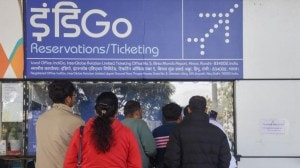
Bharatiya Janata Party
Stay updated with the latest news, developments, and updates about the Bharatiya Janata Party, including recent events, policy changes, statements from party leaders, and significant announcements at financialexpress.com
The Bharatiya Janata Party (BJP) is one of national parties of India. It was founded in 1980 as a successor to the Bharatiya Janata Sangh (BJS). The founders of the BJS were Pandit Deendayal Upadhyaya and Dr Syama Prasad Mookerjee. The BJP is affiliated with the Rashtriya Swayamsevak Sangh (RSS). The saffron party advocates for nationalism, cultural conservatism, and economic growth. Prominent leaders of the BJP include late Atal Bihari Vajpayee, Murli Manohar Joshi, Kashabhau Thakre, Lal Krishna Advani, Amit Shah, Rajnath Singh, Jagat Prakash Nadda, Shivraj Singh Chouhan, BS Yediyurappa and others. In 2014, the BJP-led NDA government came to power and since then the coalition has won three consecutive general elections, with Prime Minister Narendra Modi leading the nation.
Here are some important points about the Bharatiya Janata Party (BJP):
- Foundation and Origins: The BJP was officially founded in 1980, evolving from the Bharatiya Jana Sangh, which was formed in 1951 by Syama Prasad Mukherjee. Its ideological roots are in Hindu nationalism, with its key philosophy being Hindutva.
- Political Ideology: The BJP promotes Hindutva and cultural nationalism, emphasizing the preservation of Indian culture and values. It also supports economic liberalization, free markets, and conservative social policies.
- Key Leadership: The BJP has been led by prominent figures like Atal Bihari Vajpayee and L.K. Advani in its early years. More recently, Narendra Modi has become the face of the party, serving as the Prime Minister since 2014. Amit Shah, the former BJP president, is another central figure, particularly known for his electoral strategies.
- Electoral Success: The party experienced its major breakthrough in the 2014 general elections, when Narendra Modi led the BJP to a landslide victory, winning a majority in the Lok Sabha. It repeated this success in the 2019 general elections.
- Governance: The BJP government has implemented various economic and social policies such as Make in India, Digital India, and Swachh Bharat. It also undertook significant reforms like the abrogation of Article 370 (Jammu and Kashmir’s special status) and the Citizenship Amendment Act (CAA), which have been both praised and criticized.
- National Security and Foreign Policy: The BJP has taken a strong stance on national security, focusing on counter-terrorism, strengthening the military, and maintaining a firm approach towards Pakistan and China. Foreign policy under Modi has emphasized India’s global positioning as an emerging power.
- State-level Influence: Apart from its national dominance, the BJP has expanded its influence in state politics, forming governments in multiple states either independently or through coalitions.
- Controversies and Criticism: The BJP has faced criticism for promoting policies that some argue marginalize religious minorities, particularly Muslims, and for fostering a majoritarian agenda under the banner of Hindutva.
Read More
Related News























